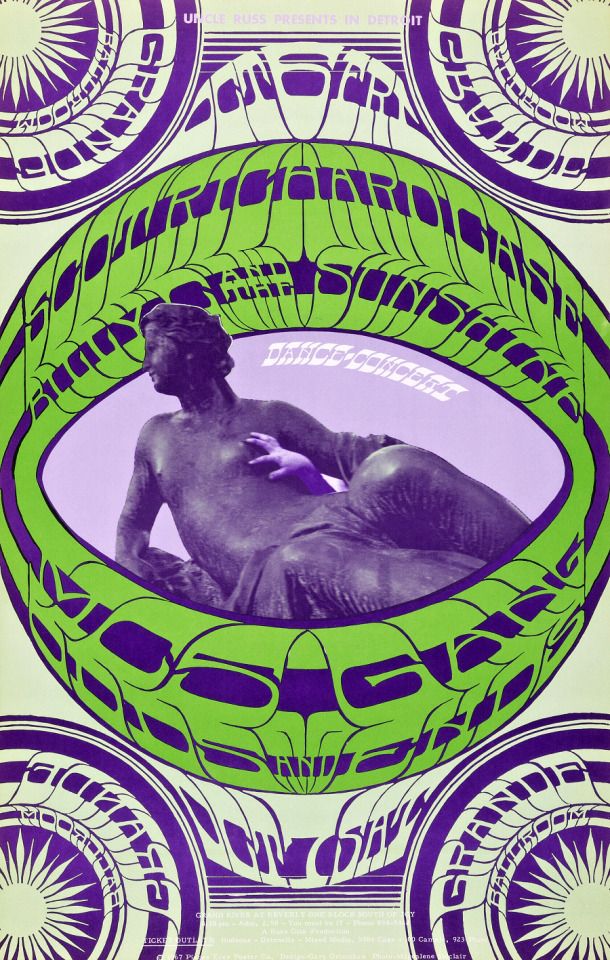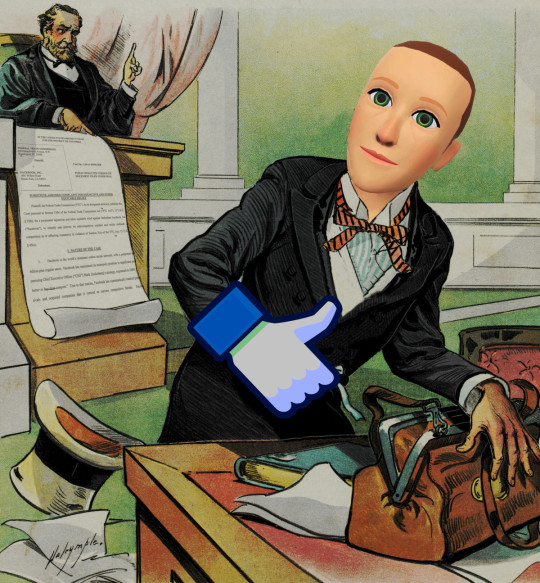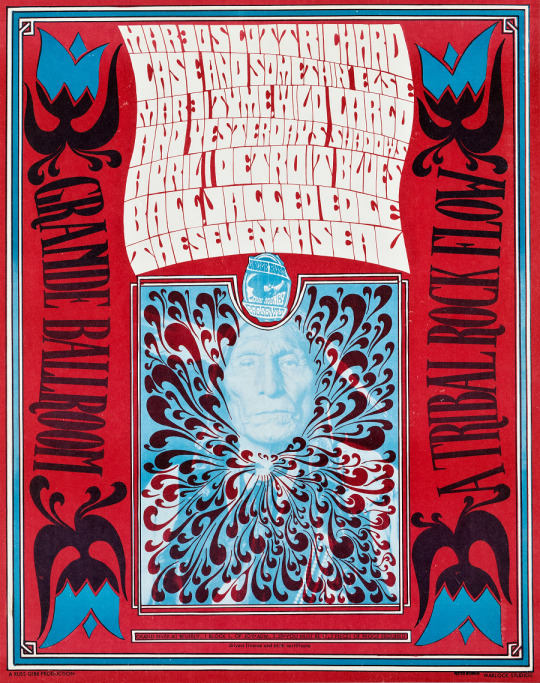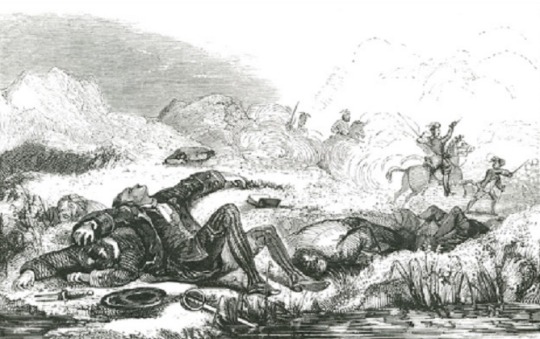#scot richard case
Explore tagged Tumblr posts
Text

MC5, Scot Richard Case, 1967
166 notes
·
View notes
Text
youtube
Psicodelia eléctrica de SRC (aka Scot Richard Case) en “No Secret Destination”, el corte que abrió su estupendo segundo LP “Milestones” (Capitol, 1969). Un tema muy rock y al mismo tiempo extrañamente muy pop (la melodía, la voz). Crema de la psicodelia americana desde Detroit, con ese imponente y distorsionado punteo solista, el órgano planeador, esa batería rápida y redoblante… Como unos Mitch Ryder & The Detroit Wheels ácidos y evolucionados.
0 notes
Text
Zuckerberg in the dock

I'm on a 20+ city book tour for my new novel PICKS AND SHOVELS. Catch me in PITTSBURGH on May 15 at WHITE WHALE BOOKS, and in PDX on Jun 20 at BARNES AND NOBLE. More tour dates here.

It's been more than a decade in the making, but Facebook – or, if you prefer, Meta – is going on trial for antitrust violations, with the highest possible stakes and the worst possible evidence (for Facebook).
The Big Tech On Trial blog was started to follow the Google antitrust case, the biggest antitrust case of the century, which was barely noticed by most of the press. Partly that was down to the 40 year period in which antitrust was not enforced, a prolonged induced coma that caused the press's antitrust muscles to waste away. Partly, it was because Judge Amit Mehta was comically deferential to Google's demands for secrecy about the trial and its exhibits, which added complexity and obscurity to the proceedings. Despite this, the DoJ prevailed, and Mehta ruled that "Google is a monopolist, and it has acted as one to maintain its monopoly." Now, Google faces break-up, and Trump's DoJ has confirmed that it will seek nothing less:
https://www.nytimes.com/2025/03/07/technology/trump-google-search-antitrust.html
The Biden administration may have been run by a president who'd spent his career kowtowing to giant, predatory corporations, but the left of the Democratic coalition forced him to install the most skilled and aggressive antitrust enforcers in generations:
https://pluralistic.net/2025/04/10/solidarity-forever-2/#oligarchism
They racked up an impressive series of wins, but too many of their cases were unfinished when the Democrats lost the election through a series of unforced errors that have left the country – and the world – teetering on the brink of a whole Bronze Age prophesy's worth of omnishambolic polycrises. There are so many important and good things imperiled by the Mad King presidency, and the DOJ and FTC's groundbreaking antitrust cases are certainly among them.
In some ways, this is normal. Vicious, criminal corporate bosses have long employed a delay/deny/defer strategy to draw out the antitrust cases against them, betting that a change in government will let them off the hook. This worked for Amway, which drew out its FTC prosecution for being a pyramid scheme until Richard Nixon resigned and was replaced by Gerry Ford, who had been the congressman to Amway founders Jay Van Andel and Rich DeVos. Ford ordered the FTC to let Amway off, so the FTC crafted the "Amway rule," which defines a list of of ruinously exploitative and dishonest tactics that are nevertheless legal. Every pyramid scheme since has been designed to fit within the confines of this rule. Whenever you hear from an old classmate hoping to sell you "leadership coaching," essential oils, tights, or any other gewgaw, know that they are the progeny of Gerry Ford and the Amway rule.
This delaying tactic also works for antitrust. When the DoJ sued IBM for its monopoly tactics, the company spent billions procuring delays. The case lasted for 12 years, from 1970-1982, and in each of those 12 years, the IBM spent more on outside counsel to fight the US government than the DoJ spent on all the lawyers fighting all the antitrust cases in the country. They called it "antitrust's Vietnam," and (unlike the actual Vietnam war) it paid off. After Reagan was elected, he ordered the DoJ to let IBM off the hook, and the company lived to monopolize another day.
Microsoft pulled off this gambit too, drawing out the proceedings and appeals after it was convicted of illegal monopolization. They delayed the process until GW Bush was elected, and then Dubya ordered his enforcers to drop their opposition to Microsoft's appeal, and the company got off scot free.
So the big question now is, "Will Trump let Facebook walk?" There's not really any question that Facebook is guilty as hell, but Trump is practitioner of "boss politics." He's made it clear that, guilty or not, he is willing to protect you if you suck up to him. He's created several channels that corporations and individuals can bribe him: there's the Trump memecoin, a virtual tipjar for the Oval Office. There's his bizarre gambit of suing companies he wishes to demand fealty from (like Disney), inviting the companies settle the suits for tens of millions of dollars more than is reasonable, as a way to legally shuffle eight-figure bribes into the president's personal bank account.
Appropriately enough, Trump inaugurated his bribery program with his inauguration, soliciting million dollar "donations" to the inauguration fund from corporate leaders seeking favors from his government. Big Tech bosses – including Zuck – broke all land-speed records in the race for their checkbooks. But Trump isn't an "honest politician" (in the Heinlein sense of "he stays bought"). Last week, Trump lopped $733 billion off Apple's market cap, which was a hell of a way to thank CEO Tim Cook for his $1m "donation."
Zuck's got other ways to bribe Trump, of course. His pivot-to-culture-war-bullshit announcement – in which he declared an end to Meta's "feminine" use of fact checkers and moderation policies – was a naked gift to Trump, a guarantee that Trump and his henchmen could lie about anything from Haitians eating dogs to gay barbers being members of fearsome international terrorist gangs without threat of moderation or correction on Meta's platforms. For a compulsive liar like Trump, any relaxation of fact checking is a naked bribe:
https://www.lemonde.fr/en/economy/article/2025/01/12/mark-zuckerberg-wants-more-masculine-energy-and-less-diversity-policy_6736961_19.html
So, will Trump's FTC take Facebook down? It's hard to say. On the one hand, Trump claims to have fired the two Democratic FTC commissioners, Alvaro Bedoya and Rebecca Slaughter. A unanimous Supreme Court ruling makes it clear that the president doesn't have the legal authority to fire FTC commissioners without cause, and Bedoya and Slaughter still consider themselves to be on the job, though they've been locked out of the building and their email:
https://en.wikipedia.org/wiki/Humphrey%27s_Executor_v._United_States
The weak GOP rump on the Commission are far from the best America has to offer. On his first day, Trump FTC Chair Andrew Ferguson killed a swathe of investigations and enforcement actions, walking away from the FTC's fights on things like "surveillance pricing" and "predatory pricing." In their place, Ferguson instituted a snitch-line where FTC employees could rat each other out for "wokeness":
https://prospect.org/politics/2025-01-24-executive-action-reaction-day-4/
But despite this, Ferguson has also indicated that he will selectively carry on the unprecedented work of Biden's FTC. For example, he affirmed that his FTC would continue to use the Biden era merger guidelines, which put far stricter limits on corporate mergers than we've seen since the 1980s. And he's publicly declared that he will fight Meta to the bitter end, praising the FTC lawyers on the case as "some of the best" in the agency:
https://www.bloomberg.com/news/articles/2025-03-17/ftc-has-the-resources-to-take-on-big-tech-chairman-says
Writing for Big Tech on Trial, antitrust litigator Brendan Benedict lays out the stakes and odds in the case:
https://www.bigtechontrial.com/p/zuckerberg-on-the-stand-the-trial
One thing is clear from Benedict's excellent, comprehensive piece: there is a lot of extremely damning evidence against Meta. Some of this evidence comes from company insiders, like the whistleblower Sarah Wynn-Williams, whose tell-all memoir of her decade running Facebook's foreign policy team is filled with stomach churning revelations about top management's deliberate, ugly, vicious disregard for its users and the world:
https://us.macmillan.com/books/9781250391230/carelesspeople/
Meta did Wynn-Williams a huge favor by forcing her into arbitration and securing a legally binding order requiring her to cease publicly commenting on her book, a move that triggered massive, worldwide interest in her book (it's why I picked it up!). This, in turn, led to Wynn-Williams being invited to testify before Congress, where her revelations about Zuckerberg's shameless, endless sucking up to the Chinese government and Xi Jinping caught the interest of Trumpland stalwarts like Josh Hawley and Chuck Grassley:
https://www.techpolicy.press/transcript-former-exec-sarah-wynnwilliams-testifies-on-facebooks-courtship-of-china/
Assuming this political will persists, Trump's FTC will have to prove that Meta deliberately set out to create and maintain a monopoly. In this regard, they will be greatly aided by the best possible witness for the prosecution: Mark Zuckerberg and his giant, flapping fucking mouth. Zuckerberg has repeatedly, explicitly confessed, in writing, in economic and legal terms, to pursuing a growth strategy based on blatantly illegal anticompetitive actions. As Careless People makes clear, Zuck is an arrogant, out-of-touch crank who cannot stop tripping over his own dick.
The first hurdle the FTC will have to clear is the "relevant market" question. For a company to be a monopolist, it has to dominate a given sector. So what's Meta's sector? In its courtroom filings, Meta claims that it competes with the entire internet and on that basis, it is a minor player indeed. Market definition is a thorny problem in Big Tech antitrust cases, because the companies are such sprawling conglomerates that they can claim that they compete with just about everyone:
https://pluralistic.net/2020/12/10/borked/#zucked
But those claims are greatly undermined when the company itself contradicts them, in writing. Back in 2011, Facebook told advertisers that it was "now 95% of all social media in the US."
Zuckerberg – the company's founder and CEO, who controls a majority of its voting stock – then proceeded to pen a series of memos affirming the company's deliberate monopolization strategy. For example, in justifying his decision to purchase Instagram – a company with 12 employees – for $1 billion, Zuckerberg described how "network effects" would keep Facebook from competing with Insta, so he planned on buying the company to capture those network effects and create a market where competitors' "new products won’t get much traction."
Other memos describe the company's deliberate plans to create high "switching costs" to make customers' departure as painful as possible, ensuring that companies with better products will struggle to attract users:
https://pluralistic.net/2021/08/28/talking-hard-work-blues/#hostage-takers
As if that wasn't enough, Zuck sent another memo contrasting Google+ with Instagram, writing, "One thing about startups though is you can often acquire them. I think that is a good outcome for everyone." This was just a restatement of Zuck's longstanding – and again, written – rule of business, "It is better to buy than to compete."
Things are not looking good for Meta. Having failed in a series of increasingly desperate maneuvers to get the case dismissed, the company has fallen back on gambits like writing Trump a check for a million bucks – and hiring Mark Hansen, the trial judge's former clerk, as its courtroom counsel.
Meta is a repeat offender. In 2019, Facebook paid the largest-ever corporate penalty of any kind, $5 billion, for lying about its users' privacy. The reason that settlement was so large? The company had already admitted to lying about user privacy and had made a legally binding promise not to do it again (they did it again) (and again) (and again).
Wynn-Williams called her book "Careless People," but there's plenty of evidence that Zuckerberg's offenses are deliberate, not carelessness. That evidence comes straight from Zuck's own keyboard, in memos where (for example) he discusses "using M&A to build a competitive moat around us on mobile and ads…[let's] spend $1-2 billion over the next couple of years on acquisitions."
Early in Facebook's history, Zuckerberg gave a speech explaining that he didn't want to sell Facebook because "Having media corporations owned by conglomerates is just not an attractive idea to me." Apparently it got more attractive after Zuck started to buy companies by the bushel.
This coincided with Meta increasing both the "ad-load" and the "unconnected posts" (boosted content from accounts you don't follow) in its products. Meta doesn't charge its users money, it charges them attention (which it then sells to advertisers and publishers) The (attentional) price of using Meta products has skyrocketed, at the expense of quality – a textbook proof of monopolization.
The timing of the release of Careless People and the trial couldn't be better (for us – not Meta!). I'm in the middle of Careless People right now (look for my review soon), and I agree with the Trashfuture panel who talked about how validating it was to have my longstanding suspicions that Facebook's many catastrophic blunders had to be the result of a deliberate decision to trade its users', customers' and society's wellbeing for its own profits:
https://www.podbean.com/ep/pb-3c2y8-1879998
Much has been made of Facebook's role in multiple genocides, starting with the Rohinga genocide in Myanmar. The company's maneuvers since then are a mix of Wynn-Williams's "carelessness" and actual malice. Facebook's traumatized moderators call themselves the company's "tonsils" – a sacrificial organ whose role is to absorb pathogens and protect the body corporate:
https://pluralistic.net/2021/04/19/tonsilitis/#mod-traum
Meanwhile, the company touts its laughably bad "genocide filters":
https://pluralistic.net/2022/03/23/false-genocide-negative/#metacrap
Even as it bullies and threatens watchdogs that monitor its moderation systems:
https://pluralistic.net/2020/11/20/sovkitsch/#adobserver
Facebook is a company that spent most of its history in a race to become too big to jail, seeking to shape regulations to keep smaller companies from growing to be competitive threats. This is why Zuckerberg has been such a vocal critic of Section 230, a law that people mistakenly view as a gift to Big Tech:
https://pluralistic.net/2021/03/25/facebook-has-a-facebook-problem/#played-for-zuckers
The company has curried favor with the world's dictators, creating a wave of "Facebook politicians" primarily drawn from the far right, including the brutal dictator of Cambodia:
https://pluralistic.net/2023/01/25/nationalize-moderna/#hun-sen
But in becoming too big to jail, the company also became too big to care (convenient for a firm whose executive ranks are filled with people who are manifestly lacking in any empathy). Thus the world's dominant social media platform has become a place where anyone who talks publicly about their cancer diagnosis will be bombarded with ads for snake-oil fake cancer cures that will drain their wallets and keep them from seeking life-saving therapy:
https://pluralistic.net/2020/07/13/youre-still-the-product/#targeting
Thus we have a company where insiders routinely use Meta's extensive commercial surveillance apparatus to casually stalk their romantic interests and anyone else they want to know more about:
https://pluralistic.net/2021/07/14/who-watches-the-zuckmen/#pecksniffs
Thus we have a company that systematically defrauded the entire media industry with its "pivot to video," creating a wave of bankruptcies in news organizations around the world, a mass extinction event we're still reeling from today (and then the company tried to do it again, with the disastrous "pivot to metaverse"):
https://pluralistic.net/2022/12/18/metaverse-means-pivot-to-video/
Thus we have a company that threatened to walk away from the EU before it would obey the trading bloc's privacy laws:
https://pluralistic.net/2020/09/22/uncivvl/#fb-v-eu
(Ironically, the company insists upon the utmost secrecy when it negotiates with regulators, because nothing is more important than (Meta's) privacy):
https://pluralistic.net/2021/01/27/viral-colonialism/#ico-schtum
Meta's own employees are clearly keenly aware of its toxic nature. It's not just Sarah Wynn-Williams: departing Facebookers' "badge posts" – where they publicly take stock of their careers at Facebook – are a litany of recriminations and regrets:
https://pluralistic.net/2020/12/12/fairy-use-tale/#badge-posts
How will this case go? Well, it's hard to say. The judge – James Boasberg – just rejected a bid by Meta to keep its exhibits secret from the press and the public, seemingly having learned a lesson from Mehta's mistakes in the Google case.
And Meta has undergone spasms of antitrust fervor, like when Apple cut off third-party commercial surveillance by mobile apps, even as Apple spied on its own customers to fuel targeted ads. This prompted Zuckerberg to go on the warpath, telling anyone who'd listen that Apple was a dangerous tech monopoly and that the government really ought to do something about it:
https://pluralistic.net/2020/08/29/chickenized-home-to-roost/#chickenizers-come-home-to-roost
Yup.

If you'd like an essay-formatted version of this post to read or share, here's a link to it on pluralistic.net, my surveillance-free, ad-free, tracker-free blog:
https://pluralistic.net/2025/04/11/it-is-better-to-buy/#than-to-compete

#pluralistic#ftc#facebook#zuck#mark zuckerberg#antitrust#trustbusting#tripping over your own dick#boss politics antitrust#careless people#Sarah Wynn-Williams
134 notes
·
View notes
Text
An extensive list of the sources I have found on Internet Archive
Last updated 6/8/25
It would be quite selfish of me to keep these to myself, wouldn't it? This list will be updated frequently, in accordance to what I have found. These were found while doing my own research for various topics, and taken from the bibliographies of many books. Some of these I will have cited in posts of mine, many others will not appear anywhere in my work. Mostly primary sources, but quite a few books make their appearance.
Sorted alphabetically by surname of author
*Some sources, for the sake of readability, have their title somewhat shortened and/or authors removed. In this case, the sourced author will be chosen according to reverse alphabetization, as this is how they are listed on the Archive
A
Alden, John Richard. General Gage in America: Being Principally a History of his Role in the American Revolution
Anburey, Thomas. With Burgoyne to Quebec; An Account of the Life at Quebec and of the Famous Battle at Saratoga
Atwood, Rodney. The Hessians: Mercenaries From Hessen-Kassel in the American Revolution
B
Balderston, Marion and Syrett, David. The Lost War: Letters From British Officers During the American Revolution
Bass, Robert D. The Green Dragoon
Burr, Aaron. Memoirs of
C
Clinton, George. Public Papers of Volume 1 Volume 2 Volume 3 Volume 4 Volume 5 Volume 6 Volume 7 Volume 8 Volume 9 Volume 10
Clinton, Henry. Observations on Some Parts of the Answer of Earl Cornwallis to Sir Henry Clinton's Narrative Clinton, Henry. The American Rebellion; Sir Henry Clinton's Narrative of His Campaigns, 1775-1782
Commanger, Henry Steele. Spirit of '76: The Story of The American Revolution as Told by Participants
E
Ewald, Johann von. Diary of the American War: A Hessian Journal
G
Grant, Alfred. Our American Brethren: A History of Letters in the British Press During the American Revolution, 1775-1781
H
Hamilton, Alexander. Papers of Volume 5 Volume 8 Volume 9 Volume 10 Volume 12 Volume 13 Volume 15 Volume 16 Volume 18 Volume 19 Volume 22
K
Kapp, Friedrich. The Life of Frederick William von Steuben
Kemble, Stephen. Journal of
L
Laurens, Henry. Papers of Volume 1 Volume 2 Volume 3 Volume 4 Volume 7 Volume 8 Volume 11 Volume 12 Volume 13
Lefkowitz, Arthur S. George Washington's Indispensable Men
M
Massey, Gregory D. John Laurens and The American Revolution
Moultrie, William. Memoirs of
Murdoch, David H. Rebellion in America: A Contemporary British Viewpoint, 1765-1783
P
Parton, James. The Life and Times of Aaron Burr
R
Ramsay, David. The History of The Revolution of South Carolina
Robson, Eric. Letters From America, 1773 to 1780, Being the Letters of a Scots Officer, Sir James Murray, to his Home During the War of American Independence
S
Steiner, Bernard Christian. The Life and Correspondence of James McHenry
Stevens, Benjamin Franklin. The Campaign of Virginia, 1781: An Exact Reprint of Six rare Pamphlets on the Clinton-Cornwallis Controversy
T
Tarleton, Banastre. A History of The Campaigns of 1780 and 1781, in The Southern Provinces of North America
V
Van Doren, Carl. Secret History of the American Revolution: An Account of the Conspiracies of Benedict Arnold and Numerous Others
W
Ward, Christopher. The War of The Revolution
Washington, George. Papers of Agricultural papers
#writings#amrev#american revolution#alexander hamilton#john laurens#henry laurens#george washington#william moultrie#david ramsay#george clinton#baron von steuben#how many volumes does alexander have? dont worry about it#aaron burr#resources#banastre tarleton#james mchenry#thomas gage#john burgoyne#henry clinton#sir henry clinton#charles cornwallis#benedict arnold#hessian#hessians
119 notes
·
View notes
Text
S.V. Dáte at HuffPost:
WASHINGTON ― For Donald Trump, Tuesday’s election has come to this: It’s either the White House or the Big House. If he wins, the coup-attempting former president, already a convicted criminal, will be able to postpone his Georgia and New York state prosecutions until he is no longer in office. As for his two federal cases, he would be able to make them disappear forever by simply ordering his attorney general to dismiss them. “Those will be dismissed on Jan. 20. Both of them,” said Ty Cobb, a former Trump White House lawyer and onetime federal prosecutor who thinks his old boss deserves prison time. “There’s a compelling interest for the country to deter this treasonous bullshit and the mishandling of sensitive information.” Trump himself confirmed he would end the federal prosecutions by firing special counsel Jack Smith in an interview last month with pro-Trump radio host Hugh Hewitt. “It’s so easy — I would fire him within two seconds,” Trump said. Smith has headed the election interference and classified documents investigations.
The New York and Georgia cases, meanwhile, would at best go into hibernation, lawyers said, because courts have ruled that presidents must have the ability to carry out their duties under the Constitution, notwithstanding state legal cases. “The state cases, because of the supremacy clause, nothing much will occur,” said Karen Agnifilio, a former prosecutor in Manhattan. “He can be sentenced in New York state, but he will not get anything that bleeds into his presidency. So maybe community service? A fine? Nothing?” A Trump victory over Democratic Vice President Kamala Harris would mark the first time in American history that voters have put a literal criminal into office. Among former presidents, only Richard Nixon even came close to facing charges for his attempt to cheat in the 1972 presidential election and his subsequent attempts to cover it up. He was preemptively pardoned by newly sworn-in Gerald Ford days after Nixon resigned from office in 1974.
Trump, in contrast, already faces three active criminal cases against him: in state court in Georgia, for his attempt to overturn his 2020 election loss there; in federal court in Washington, D.C., for his actions leading up to and during his Jan. 6, 2021, coup attempt; and in New York state court, for falsifying business records to hide a $130,000 hush money payment to a porn star days ahead of the 2016 election. There was a second federal prosecution, in South Florida based on Trump’s refusal to turn over secret documents he took with him to his Palm Beach country club upon leaving the White House, that was dismissed by U.S. District Judge Aileen Cannon. Smith is appealing to have those charges reinstated. The New York case would be his most immediate threat, should he lose. A New York City jury in May found him guilty on every count. Sentencing is now set for Nov. 26. Though it is a white-collar crime and Trump is still legally a first-time offender, Judge Juan Merchan can consider Trump’s lack of remorse, the seriousness of the crime ― intended to sway the 2016 presidential election ― as well as Trump’s multiple violations of Merchan’s gag order forbidding the former president from attacking witnesses and court officers in the case.
Today, this election will determine the fate of any chance of whether Donald Trump will be held accountable for his crimes.
If he loses, he’ll be in a heap of legal trouble. If he wins, he’ll be off scot-free.
#Donald Trump#Trump Indictment#2024 Presidential Election#2024 Elections#Trump Indictment IV#Trump Indictment III#Trump Indictment II#Georgia v. Trump#People of New York v. Trump#United States v. Trump#Ty Cobb#Jack Smith
20 notes
·
View notes
Text



October 18th 1541 saw the death of Margaret Tudor, English princess, former Queen consort of Scotland and sister of Henry VIII.
Maybe Margaret was destined to be Queen of Scotland, she was baptised on November 30th 1489, St Andrews day.
From an early age, Margaret was part of Henry VII’s negotiations for important marriages for his children and her betrothal to James IV of Scotland was made official by a treaty in 1502 even though discussions had been underway since 1496. Part of the delay was the wait for a papal dispensation because James’ great-grandmother was Joan Beaufort, sister of John Beaufort, who was the great-grandfather of Margaret Tudor. That made James IV and Margaret Tudor fourth cousins, which was within the prohibited degree. Patrick Hepburn, the Earl of Bothwell, acted as a proxy for James IV of Scotland for his betrothal to Margaret Tudor at Richmond in January 1502 before the couple was married in person in August 1503.
The Tudor writer Richard Grafton escorted Margaret to Scotland and it’s seems he wasn’t too taken with us, he later wrote….“Then this lady was taken to the town of Edinburgh, and there the day after King James IV in the presence of all his nobility married the said princess, and feasted the English lords, and showed them jousts and other pastimes, very honourably, after the fashion of this rude country. When all things were done and finished according to their commission the earl of Surrey with all the English lords and ladies returned to their country, giving more praise to the manhood than to the good manner and nature of Scotland.”
It’s amazing we survived as a race, let alone as Scots, given the mortality rate, even in cases where the mothers well better off, as in Margaret’s case, she had a horrible time trying to provide James IV with an heir. Her first pregnancy was in 1506 and she gave birth to a son, James, in February 1507 who lived about a year. Margaret next gave birth to a daughter in July 1508 who only survived for a few hours. In 1509, Margaret’s father died and her brother was now Henry VIII, the new king of England. Early in that year Margaret became pregnant once again and gave birth to another son, this one named Arthur, in October. However, this child also died at a young age, only nine months old.
Margaret’s next child was born on April 11, 1512 at Linlithgow and named James. This child, unlike all those before him, lived to adulthood and at little over a year old he was to succeed his father as James V. The Queen became pregnant yet again shortly afterwards and gave birth to another daughter, who died a few hours later.
It was during Margaret’s final pregnancy that James IV and the Flower of Scotland s, died on the battlefield at Flodden.
Margaret had thoughts of becoming regent for James V, but it was unheard of for women to rule, so needed a husband, unfortunately for her she chose a man seen by his counterparts as a fool. Her second husband was the powerful Scottish lord Archibald Douglas, 6th Earl of Angus. And so it was that John Stuart, Duke of Albany (a cousin to the king, and next in line to the throne after little Alexander’s death), was invited by the Scottish lords to be Regent. Albany had been living in France with his mother’s relatives and served three French kings - Charles VIII, Louis XII and Francis I. Albany arrived in Scotland in May 1515.
By this time Margaret was pregnant, yes again!. As an English woman among Scots she felt ill at ease and fled to England, James V had by this time been seized from her by the Lords. She gave birth to a daughter, Margaret Douglas in October. Margaret fell very ill after her daughter’s birth and nearly died, her Douglas abandoned his wife about this time and returned to Scotland. Margaret stayed in England for about a year before returning to Scotland under promise of safe conduct in June 1517.
The marriage of Margaret and Angus turned out to be disastrous. While he was in Scotland and she was in England, Angus had taken a mistress and was living off of Margaret’s Scottish revenues. The next few years were terrible for Margaret, with a horrible marriage, no money, no power and very little contact with her son James.
In 1524 Margaret, in alliance with the Earl of Arran, overthrew Albany’s regency and her son was invested with his full royal authority. James V was still only 12, so Margaret was finally able to guide her son’s government, but only for a short time as her husband, Angus took control of the young King. Margaret was finally able to attain an annulment of her marriage to Angus from Pope Clement VII and by the next April she had married her third husband, Henry Stewart, who had previously been her treasurer.
Things got serious for a time when her second hubbie, arranged for the third hubbie to be arrested as no permission had been granted by the Lords for this marriage, it was all resolved by 1528, whe James V was able to rule for himself, being 16. He appointed Henry Stewart as Lord Methven and proclaimed the Douglas’s as traitors, Angus fled to England.
Margaret’s relationship with her son was relatively good, although she pushed for closer relations with England, where James preferred an alliance with France. In this, James won out and was married to Princess Madeleine, daughter of the King of France, in January 1537. Madeleine was a poorly woman and died in July she is buried at Holyrood Abbey.
After his first wife’s death, James sought another bride from France, this time taking Marie de Guise.
By this same time, Margaret’s own marriage had followed a path similar to her second one when Methven took a mistress and lived off his wife’s money.
On this day in 1541, Margaret Tudor died in Methven Castle in Scotland, probably from a stroke. She was buried at the Carthusian Abbey of St. John’s in Perth, King James VI Hospital now occupies the it’s former location.
6 notes
·
View notes
Text
Elizabeth’s apparent need for compliments and admiration of her appearance has also been put down to sheer vanity, but was it just that? On occasion Elizabeth made it quite obvious that a compliment was expected from ambassadors and courtiers, but in some of these cases it may simply have been a feminine manoeuvre for gaining time. The oft-quoted conversation with Sir James Melville may have been as much to test him and gain information about the Queen of Scots as to obtain compliments for herself. Sir Richard Baker described her as short sighted; the compliments would have given her time to get a clear view of the speaker.
Janet Arnold, Queen Elizabeth’s Wardrobe Unlock'd
11 notes
·
View notes
Text

Diana Gabaldon spoke at the University of Glasgow's Outlander conference. Photo: Martin Shields
Diana Gabaldon recalls how first Outlander book ‘almost cancelled’
Best-selling Outlander author Diana Gabaldon has created nine beloved books and a seven-season TV series - but the franchise almost didn't happen.
The American writer told fans in Glasgow her first novel was almost cancelled because publishers could not decide what to do with it.
It took more than a year to go on sale as a debate raged about where it would sit on bookshop shelves.
The series has boosted Scottish tourism with fans flocking to Scotland to visit the book and TV programme's locations.
The author spoke at the word's first international academic Outlander conference at the University of Glasgow, which has been the backdrop for several scenes in the Starz TV series.
Expert scholars and Outlander fans have come together for events in the city, exploring themes such as Jacobite history, screen production, Scottish tourism, Gaelic and Scots, costume design, fandom, main character Claire Fraser's medicine, and witchcraft.
Ms Gabaldon - originally an academic herself - was awarded an honorary doctorate by the university in June last year.

The drama series stars Catriona Balfe and Sam Heughan as Claire and Jamie Fraser. Photo: Starz
Speaking about her first book, she said: "It took the publishers 18 months to figure out what to do with it. I learned later that they came very close to cancelling the contract and giving me back the book because they couldn't decide how to sell it.
"This was before Amazon where a book can be classified as several things at once and people can pick off the web what they want, and they still get the same book.
"Back in the day it was only bookstores, you had to put a book on a certain shelf, the shelf had to have a label and the book also had to have that label."
She said the decision to sell it as a romance came as a shock.
"My agent finally called me up and said they had decided to publish it but sell it as a romance. I said, 'What?' that isn't what I wrote.
"He pointed out that a best seller in fantasy fiction was 50,000 copies in paperback while in romance it is 500,000 copies. So we sold it as romance."
'Too weird'
She said that the success of the books was down to readers' recommendations.
"My first editor said to me early on these have to be word of mouths books because they are too weird to describe, which is totally true and that is also true about the word of mouth.
"So that being the case it made total sense to expose the book to 500,000 people in the romance category who will go out and tell their friends and the word will spread.
"So we did that and that is exactly what happened."
The Outlander series is currently nine books, with the author working on the tenth - and believed to be the final - book.
It follows the story of a post-World War Two nurse visiting Scotland who accidentally time travels to the Jacobite era.

Roger (Richard Rankin) and Brianna (Sophie Skelton) are main characters in the show. Photo: Aimee Spinks
It has now become one of the bestselling book series of all time and spawned the popular TV series, currently in its seventh season.
Ms Gabaldon's talk was entitled, '"Why Scotland? Why Not Mexico?" Genes, Borders, Culture and Fiction: Why They Matter and When They Don't'.
In it, she explained why she picked Scotland as the location of Outlander.
She said: "What I learned from my research and contact with Scots is that Scots are, and historically were, very literate. They wrote down things. They also have a very strong oral culture, they told their stories.
"They also have a lot of history available. Then there is the nature of Scottish history, it has a lot of heroes and heroines as well as conflict which is what you need for a good story."
The conference runs until Saturday and has seen fringe events including music concerts and battle re-enactments in the university's famous cloisters.
Transformative impact
Senior Lecturer in Gaelic at the University, Gillebride Macmillan, who has appeared in the programme, said it had been really important for the Gaelic language.
"It's so important for a minoritized language, such as Gaelic, to be seen on a world level, on a world stage, and Outlander gives Gaelic that opportunity.
"And I think it's been fantastic to hear Gaelic spoken by the actors and in the books, and also the use of Gaelic music, Gaelic song. I've been very lucky myself to be a part of that and I think it's been an incredibly positive thing for the language.
"Which I think has been born out by things such as, one and a half million people learning Gaelic in Duolingo. Obviously, many people are learning Gaelic for many different reasons, but Outlander has been one of the major factors for that."
Prof Willy Maley, professor of Renaissance studies (English Literature), at the university, said: "Diana Gabaldon's Outlander series has had a transformative impact on Scottish culture, generating global interest in the history, languages and landscapes of Scotland.
"Vivid and visceral, Outlander is an otherworldly but never unworldly phenomenon that takes a time-travelling nurse-turned-doctor and propels her from 1946 to 1743, two worlds of war that collide in an elaborate and painstaking reconstruction that make the series much more than historical fiction and more an innovative and pioneering rethinking of how we excavate and examine the narratives of the past.
"Outlander has also been a brilliant boost for the Scottish film industry."
BBC News


Gifs: @scotsmanandsassenach S01E03 The Way Out, Gillebride Macmillan as Gwyllyn the bard
Remember… I think it's been fantastic to hear Gaelic spoken by the actors and in the books, and also the use of Gaelic music, Gaelic song. I've been very lucky myself to be a part of that and I think it's been an incredibly positive thing for the language. — Gillebride Macmillan
#Tait rhymes with hat#Good times#Outlander#Diana Gabaldon#BBC News#22 July 2023#Outlander Conference#University of Glasgow#18-23 July 2023
37 notes
·
View notes
Note
Hey! I'm kind of a new Aneurin fan...I haven't watched all of his stuff yet, only a few things, but he's already re-awakened the tragic emo whump fic writer inside me :'D. Sorry if this is an odd question, but do you know if he has any scenes involving injury stuff? The closest I've seen is Citadel where he gets attacked and wakes up in hospital, and Dunkirk where...well...(sheds a tear for Gibson). I'm basically looking for scenes I can use as inspiration for whump. (asking anonymously in case this question is weird T_T)
Thank you for your question! I love watching Aneurin cry 😅 it's those huge pug eyes of his.. and don't worry, this is Tumblr. Everything is weird here 🙃🙃
Well.. I don't think he has much of those scenes, but I'll try to list some.
A welsh soap opera about a bunch of doctors called Casualty prt 2 - prt 3 - prt 4
There's a short film from his student times titled In Deep (2008) .
Ironclad (2011) - he is a wee virgin squire here who joins to his first battle.
The White Queen (2013) - Richard's death scene in the very last episode 😭 (get ready for a brand new trauma)
Mary Queen of Scots (2013) - idk if it counts, but Lord Darnley gets sick and develops pretty nasty oozing scars on his face.
A very minor hand injury in Dead in a Week or Your Money Back (2018)
Barkskins (2020) - There are a few scenes where he fights and gets injured/bloody
His final scene in The Catch (2023) might count bc he gets stabbed
And he gets beaten up a few times in 1899 (2022)
8 notes
·
View notes
Text
Piers Morgan has made several statements regarding Prince Harry and Harrys Wife in light of a recent court ruling. by u/Oakthrees
Piers Morgan has made several statements regarding Prince Harry and Harry’s Wife in light of a recent court ruling. Greetings, Devotees of Regal Intrigue!Prepare for a riveting tale from the high courts of Twitter, where Piers Morgan, known for his fervent opinions, in a display of chivalrous keyboard warfare, has unleashed a speech and a Twitter tirade against Harry and Meghan. Post Prince Harry's triumph in a phone hacking lawsuit, Morgan's response wasn't merely shade, but an entire forest of disapproval. Following Harry’s victory, he's branded Harry as a would-be monarch-toppler, casting himself as the monarchy's gallant defender.Morgan skewers Harry for hypocrisy and avarice, casting him and Meghan as the Bonnie and Clyde of royal disruption. He accused Harry of a mission to destroy the monarchy, with Meghan as his partner-in-crime. He accused Harry of attacking the royals for financial gain and for showing no mercy to his own people. Picture Morgan, battle-ready, eyes ablaze with fervor, firing off tweets and spoken word like arrows. He seems to envision himself as the monarchy's savior, shielding it from the perils of podcasts and Netflix specials.Some might liken him to a modern Don Quixote, jousting with digital windmills. Yet, others applaud his dogged devotion to the crown. In this Sussex saga, climate change and social justice are just a cover for vindictive royal rumblings.Envision Harry and Meghan in their Californian stronghold, scheming to dismantle centuries-old traditions with their social media savvy and Oprah on speed dial. Who needs regal regalia and broadswords when you have Wi-Fi and a streaming contract? In this high-stakes game, crowns and scepters are out – hashtags and streaming deals are in.But hold!... Perhaps the root of this drama lies in Meghan's fury at her absence from the royal balcony or not sitting next to Harry at dinner. This tale might just be a classic case of envy morphing into a psychotic vendetta, with our self-appointed champion taking up digital arms to protect the realm.So, fellow royal conspirators, what’s your take? Is this the most ambitious royal family plot since previous royal family murders? A bloody reminder….🦁❤️ - King John of England's betrayal during his brother King Richard I's crusade?⚔️🌹 - Henry IV's deposition of Richard II, altering the course of English history?⚔️🌹 - Richard, Duke of York's claim to the throne during King Henry VI's minority?🏰 - King Richard III's controversial ascent to power and the enigma of the "Princes in the Tower"?👸 - Queen Mary I's struggle against her half-brother Edward VI's Protestant succession plans?🏴🏴 - The prolonged conflict between Queen Elizabeth I and ✝️ Mary, Queen of Scots?Or is it merely Piers Morgan in the throes of a royal-scale meltdown because the royal family clearly don’t murder or plot to usurp one another for the crown.☝️☝️☝️Do they.https://ift.tt/KZyb1XU post link: https://ift.tt/rXYHWJt author: Oakthrees submitted: December 15, 2023 at 10:04PM via SaintMeghanMarkle on Reddit
#SaintMeghanMarkle#harry and meghan#meghan markle#prince harry#voetsek meghan#sussexes#markled#archewell#megxit#duke and duchess of sussex#duchess of sussex#duchess meghan#duke of sussex#harry and meghan smollett#walmart wallis#harkles#megain#spare by prince harry#fucking grifters#meghan and harry#Heart Of Invictus#Invictus Games#finding freedom#doria ragland#WAAAGH#Oakthrees
3 notes
·
View notes
Text
Just to add, "blood is thicker than water" with its more known and accepted definition is an older and more consistently used version of the saying than, "blood of the covenant is thicker than water of the womb."
In John Moore's Zeluco (1789), a character assures another in a letter that there is little danger in him forgetting his old friends "and far less my blood relations; for surely blood is thicker than water."
The phrase is also referenced in a collection of Scots Proverbs by Allen Ramsay (1737) and states the version "blood is thicker than water" as the complete form of the proverb.
"Blood of the covenant is thicker than water of the womb," is an interpretation that was first recorded in 1990 by author Albert Jack and rabbi Richard Pustelniac wherein they utilize a tried and true method to legitimize their interpretation by saying that it's the "original" meaning without citing any sources to support this claim.
ALL THIS TO SAY, sayings are just words. They're not universally correct and they change in meaning over years as the use of the saying changes and the morals of the time period adjust. "Blood is thicker than water" comes from a time when your family members were the only people you could generally rely upon to care about your well being and an overwhelming amount of time/effort spent was to try and improve or sustain the lifestyle of your current household (think who benefitted from all the effort of drawing water, cooking, choring, working a job, or making/washing clothes). In recent years this is less the case and a different interpretation of this saying is more valuable to modern relationships. That doesn't make the old meaning wrong, it doesn't make the new meaning the original, it just evolves.
"The customer is always right in terms of taste" was a very reasonable saying to develop in a time when individual sales are nontrivial income sources. But "the customer is always right," is far more appropriate in a world where capitalism overwhelming values repeat business and brand loyalty and where replacing a worker that won't let a customer run them over is as easy as reaching your hand out the front door and grabbing someone.
People saying, "the customer is always right" from a management perspective aren't "using the saying wrong." They're using a fundamentally different fucking saying that's adapted itself to an environment that cares more about how much money a billionaire can get from any individual customer than how much suffering it costs a worker to extract it.

108K notes
·
View notes
Text

Scot Richard Case + Seven Others, 1967.
14 notes
·
View notes
Text
The imperial state crown, the latest incarnation of which has been resting on the Queen’s coffin as thousands of people have filed past this week, has witnessed many resonant moments in history, and a few less majestic ones too.
After the death of the Queen’s grandfather, George V, for instance, the king’s coffin was being transported from London’s King’s Cross station with the crown on top when the jolting of cobbled streets caused the diamond-encrusted globe on top, and the cross and sapphire it supports, to snap off and roll into a gutter.
Though it was hastily retrieved, the dead monarch lay in state under a mutilated crown, which many in the crowd, including the new king, Edward VIII, took as a bad omen. Eleven months later, sure enough, he abdicated.
The tradition of crowns representing royalty is “a time-honoured thing seen in cultures across the world and through deep time”, says Anna Keay, a former curator at the Tower of London who has written the official guide to the crown jewels. “The business of wearing something on your head that speaks of your status as a special person – we see it through millennia.”
In other words – enchanting or repulsive – the vast, ridiculous excess of the crown’s 2,868 diamonds, 17 sapphires, 11 emeralds, four rubies and 269 pearls is its symbolic point. These are some of their stories.
1 St Edward’s sapphire
This may be the oldest stone in the crown, having been buried as a ring, according to legend, with King Edward the Confessor in 1066 (and dug out of his grave a century later). Edward had given the ring to a beggar, the story goes, who turned out to be St John the Evangelist. The remarkable Wilton diptych, now in the National Gallery, shows an image of Edward as a saint holding an apparent sapphire ring.

“The difficulty is it’s very hard to identify any of these gems to say confidently that they are the ones from before,” says Keay, now director of the Landmark Trust. In the case of the sapphire, disappointingly, “I don’t think the case is very strong … In crown terms it’s quite small. Obviously in everyone else’s terms, it’s enormous.”
2 Queen Elizabeth’s earrings
The imperial crown is so named not because of the British empire, but because of its closed-arch form, which Henry VIII adopted (instead of an open coronet) to signal his supposedly imperial status. Dangling from the centre of the arches are four large pear-shaped pearls.
According to the Royal Collection Trust, these have been linked to seven pearls that Catherine de’ Medici gave to her daughter-in-law, Mary, Queen of Scots. Elizabeth I may have later worn them as earrings, though she apparently preferred pearls on her costume.
On the other hand, notes the trust, “it appears that at least two of the pearls did not enter the collection until the 19th century”, which undermines some of the Elizabethan romance.
3 The Black Prince’s ruby
Actually a 170-carat spinel, it is certainly a very ancient unfaceted jewel that was pierced at some point in its history (a little visible lump is in a ruby plugging the hole). The Black Prince is said to have demanded the stone in exchange for helping Peter of Castile (variously known as “the Just” or “the Cruel”, depending on one’s point of view). Peter had taken the ruby from Abu Said, the ruler of Granada, after stabbing him to death as he was trying to surrender, which may settle the question of the nickname.
A delightfully dated 1960s film available on YouTube shows the Queen talking about the crown, saying of the ruby: “I always like to think of it being worn by King Henry V during the Battle of Agincourt.” Richard III may also have had it on his helmet when he was killed at the Battle of Bosworth, the Tudors retrieving it before it ended up in a car park.
4 Cullinan II
So named because, even at a boggling 317 carats, it is not the biggest jewel cut from the Cullinan gem, the biggest uncut diamond ever discovered. That, at 531 carats, is in the Sovereign’s Sceptre, also currently perched on top of the coffin in Westminster Hall.
Though some in the continent would undoubtedly welcome it back, the “second star of Africa” does not have a particularly disputed origin – unlike the Koh-i-noor diamond set in the Queen Mother’s crown, which very much does. It was found at a mine in South Africa in 1905 – “apparently [the manager] just dug it out of the rock face with his walking stick,” says the Queen in the video. The government of Transvaal bought the stone and presented it to Edward VII on his 67th birthday.
“There are two smaller pieces,” the Queen continues, “which my grandmother always referred to as ‘the chips’.”
0 notes
Text


The Battle of Lochmaben Fair was fought on 22nd July 1484 in the town of Lochmaben in south-west Scotland.
The second of three battles to feature today, it’s called a battle, but from the evidence I can gather it was more of a skirmish, or even a raid. This was another case of the Albany Stewarts and Douglas' trying to mount an uprising.
A party of cavalry led by the rebel Earl of Douglas and the Duke of Albany, crossed from England and clashed with local forces loyal to James III.
James was not the most popular King of Scots, and exploiting the situation, his exiled cousins Alexander Stewart, Duke of Albany and James, 9th Earl of Douglas brought a troop of English cavalry into Scotland with the backing of the recently crowned Richard III.
They misjudged the situation and when they turned up at the annual Lochmaben Fair in the hope of inciting an uprising, the townsfolk turned against them. Albany escaped while Douglas was taken prisoner and imprisoned at Lindores Abbey where he died four years later.
Read more about it all here https://www.douglashistory.co.uk/.../lochmabenfair.htm...
7 notes
·
View notes
Text
“We already wrote an article on why non-disordered Plurals do not have factitious disorder and also aren’t malingering. They are Plural, for cultural, spiritual, neurodivergent, or other reasons that most do not yet understand. But there is another group of people with DID/OSDD and/or Plurality who aren’t getting the diagnosis or treatment they need. They are disproportionately likely to be from lower socioeconomic backgrounds, live in areas where trauma and dissociation informed treatment is hard to find, or belong to racial and ethnic minority groups. These are also the individuals who are often underrepresented in research about Dissociative Identity Disorder.
In 1999 Boon and Draijer wrote their explanation for the term they coined, at the start of their paper they titled Imitated DID – patient at risk, therapist at risk:
‘’Since the late 1980s the authors have been confronted with cases of imitated dissociative identity disorder (DID) in Holland. Because DSM-IV defines “factitious disorder” as intentional, the term “imitation of DID” is used here for patients who, partly unconsciously motivated, simulate a DID profile. DID can be imitated due to contagion, to iatrogenesis, or to both. The core dynamics are: (1) the avoidance of responsibility for negative behavior, found mostly in patients with a borderline or antisocial personality disorder; and (2) the compensation for an overwhelming feeling of not being seen. The last, “hysterical,” dynamic is characterized by identity disturbances varying in severity according to the underlying borderline personality structure. Four cases are described. Differentiating between genuine and imitated DID requires systematic assessment by an experienced clinician. Even then this is difficult, in particular differentiating between flamboyant genuine DID, with coexisting histrionic personality disorder (a minority of patients with genuine DID), and simulated cases. Diagnostic and treatment implications are discussed.’’”
Source: https://powertotheplurals.com/imitateddid/
Two papers directly connected to that article:
https://journals.sagepub.com/doi/10.1177/009318539902700304
https://pubmed.ncbi.nlm.nih.gov/34025510/
Additional:
https://www.researchgate.net/publication/7247074_A_New_Model_of_Dissociative_Identity_Disorder
Thomas A. Factitious and Malingered Dissociative Identity Disorder. J Trauma Dissociation. 2001;2(4):59-77. doi: 10.1300/J229v02n04_04.
Brand, Bethany & McNary, Scot & Loewenstein, Richard & Kolos, Amie & Barr, Stefanie. (2006). Assessment of Genuine and Simulated Dissociative Identity Disorder on the Structured Interview of Reported Symptoms. Journal of trauma & dissociation : the official journal of the International Society for the Study of Dissociation (ISSD). 7. 63-85. 10.1300/J229v07n01_06.
Brand, B. L., Webermann, A. R., Snyder, B. L., & Kaliush, P. R. (2019). Detecting clinical and simulated dissociative identity disorder with the Test of Memory Malingering. Psychological Trauma: Theory, Research, Practice, and Policy, 11(5), 513–520.
International Society for the Study of Trauma and Dissociation (2011): Guidelines for Treating Dissociative Identity Disorder in Adults, Third Revision, Journal of Trauma & Dissociation, 12:2, 115-187
0 notes
Photo

Action Age Seventeen Day - at Hudson’s Downtown, The Rationals, Scot Richard Case, The Amboy Dukes, March 30, 1968
#Action Age Seventeen Day#Hudson’s Downtown#The Rationals#Scot Richard Case#The Amboy Dukes#March 30#1968
3 notes
·
View notes